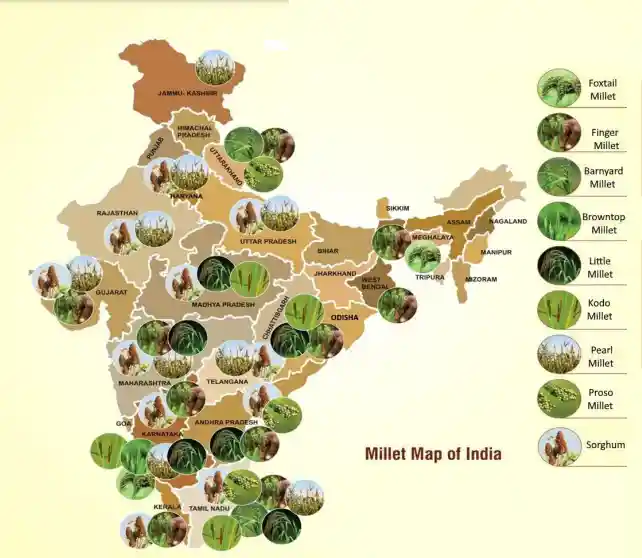

India's millet policy should be a driver of food security
India is also looking at expanding millets and millet flour in its public distribution system (PDS) amid uneven monsoon this year leading to a reduction in sowing of rice. At present, rice, wheat, sugar and kerosene are the main items distributed under PDS, depending on state governments people also get salt, pulses and edible oils.
To ensure food security in the country, the Centre has now decided to sharpen its focus on increasing millet production across the country, which is expected to help India in achieving its sustainable development goals (SDGs) as well. Among the several goals, SDG 2 aims at achieving zero hunger along with provision of nutritional food. Until now, despite being the largest producer of millets in the world, these grains have not found place in the PDS.
An analyst said that the intense heatwave that hit the country in May and the rising concerns over global climate change are also pushing policymakers to actively promote millet production.
Millet crops, which takes less time to grow, are drought resistant and can be produced in dryland. These crops not only require 70 per cent less water than rice but consume about 40 per cent less energy as well.
Though India produces more than 33 per cent market share, its exports have not gone up proportionately. But the government, which imposed a ban on rice exports, is now looking at playing a key role in supplying millets.
The Department of Agriculture and Farmers Welfare has already taken up a programme to increase production of millets. Pearl millet or bajra, one of the most popular grains is being promoted in 89 districts of nine states which include Gujarat, Himachal Pradesh and Jammu & Kashmir besides several other northeastern states.
Millets for food security
At the recently concluded Shanghai Cooperation Organisation (SCO), Prime Minister Narendra Modi underlined the need to increase production and consumption of millets across the globe to address food related risks.
“Millets are a superfood that has been grown for thousands of years, not just in SCO countries, but in many parts of the world. It is a traditional, nutritious, and low-cost alternative to dealing with the food crisis,” he said, adding that the year 2023 will be celebrated as the UN International Year of Millets. The Prime Minister even said that the SCO should consider organising a ‘Millet Food Festival.’
The shortage of wheat driven by the ongoing Russia-Ukraine war just after the Covid pandemic has prompted many countries to increase consumption of millets.
To add to the problem, large swathes of crops in Europe have been damaged as well due to the intense heatwave causing droughts in several parts of the continent.
“Global food risks have been steadily rising and in this scenario we must focus more on millets, as the crops required significantly less water compared to rice..our farmers need to be made more aware about the benefits of millet production,” Gopal Krishna Agarwal, national spokesperson for BJP, said.
An analyst dealing with this area said that rising concerns over global climate change will also increase demand for millets even in the developed world, though at present, its consumption is primarily limited to the developing nations. Africa accounts for about 40 per cent of global millet consumption.
Nancy Aburto, an agriculture expert at the Food and Agriculture Organization (FAO) last year, said that the renewed focus on boosting the production of millets and highlighting their benefits, is critical to reducing over-reliance on more commonly grown crops, boosting diverse diets, and food security. That’s especially true during periods of natural disaster when food becomes scarce, Aburto said.
Also read: Explained: Why 2023 will be the International Year of Millets
How Modi’s “middle path” at the SCO summit advanced India’s core interests
Hailing the centre's fight against naxalism and red terror, Prime Minister Narendra Modi said that…
Defence Minister Rajnath Singh aboard India's first indigenously built aircraft carrier, INS Vikrant, on Friday…
In a coordinated operation, the North West District of Delhi Police apprehended 38 Bangladeshi nationals…
A recent report by the Tibet Action Institute has unveiled troubling evidence of mistreatment, forced…
Heavy rain lashed many districts of Kerala on Friday, disrupting normal life and causing waterlogging.…
Foreign Secretary Vikram Misri met US Under Secretary of Defence Elbridge Colby along with Indian…